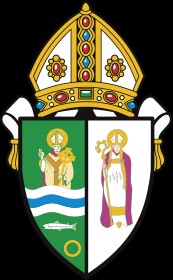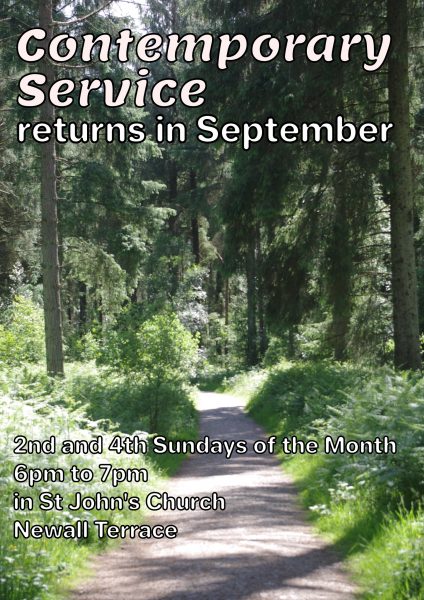Rev Janice Aiton
“Father, forgive them, they know not what they are doing.”

I am currently using a Lent book with a group entitled “Cries from a lost homeland” by Guli Francis- Dehqani
What is forgiveness? How would you define it? There are many definitions. Here are some below, which one resonates the most with your understanding of forgiveness?








The writer says that forgiveness begins, or at least, where its power is located and its challenge to us is focussed -at the cross of Jesus.
“Father forgive them” is the first of Jesus’ seven sayings and strangely enough is only found in the Gospel of Luke. Interesting that the writer says that not all manuscripts of Luke hold these words of Jesus’ forgiveness….it is said that some Christians felt that the Crucifixion of Jesus was of a different order- beyond the pale; an unforgivable sin… do you think that is why Jesus sought forgiveness for the people from his Father?
The writer speaks of forgiveness as less a point of arrival at some clearly defined destination and more of a messy voyage. Forgiveness is a reminder to us all that we have fallen short… and need forgiveness in our own lives. Forgiveness is truly not an easy option; it is costly, messy and painful but it does open up the way of life.
Jesus calls us to forgive, indeed when Peter asks Jesus how many times should he forgive. Peter is told that he must forgive without limits. The implication being that forgiveness is ours to offer and lies within our power to do so.
Yet the writer Guli, poses an intriguing question: Is forgiveness always ours to offer? Take the people in Ukraine can they forgive those who have cut short the lives of their children…is forgiveness theirs to offer? Is it not the children whose lives were cut short that can alone forgive? I suspect the answer to that question is yes- for you can only forgive to the extent that it affects and involves yourself, otherwise forgiveness and absolution ultimately rest with God.
Jesus prays “Father forgive them….they do not know what they are doing…, does that absolve them of responsibility?
Forgiveness is the starting place of hope…

READ THE FOLLOWING TRUE STORY ABOUT THE CHALLENGE OF FORGIVENESS
Corrie Ten Boom
Forgiveness is a struggle for all of us at one time or another in our lives. Perhaps one of the greatest stories of forgiveness is an experience Corrie ten Boom, author of The Hiding Place had after she was released from the concentration camp. I not only want to encourage you as you read her story, but also don’t want us to forget the amazing stories of great women of God from the past like Corrie ten Boom! ~ Jill Briscoe
It was in a church in Munich where I was speaking in 1947 that I saw him – a balding heavyset man in a gray overcoat, a brown felt hat clutched between his hands. One moment I saw the overcoat and the brown hat, the next, a blue uniform and a visored cap with its skull and crossbones.
Memories of the concentration camp came back with a rush: the huge room with its harsh overhead lights, the pathetic pile of dresses and shoes in the centre of the floor, the shame of walking naked past this man. I could see my sister’s frail form ahead of me, ribs sharp beneath the parchment of skin.
Betsie and I had been arrested for concealing Jews in our home during the Nazi occupation of Holland. This man had been a guard at Ravensbruck concentration camp where we were sent.
Now he was in front of me, hand thrust out: “A fine message, Fraulein! How good it is to know that, as you say, all our sins are at the bottom of the sea!”
It was the first time since my release that I had been face to face with one of my captors and my blood seemed to freeze.
“You mentioned Ravensbruck in your talk,” he was saying. “I was a guard there. But since that time,” he went on, “I have become a Christian. I know that God has forgiven me for the cruel things I did there, but I would like to hear it from your lips as well. Fraulein – “again the hand came out – “will you forgive me?”
And I stood there – and could not. Betsie had died in that place – could he erase her slow terrible death simply for the asking?
It could not have been many seconds that he stood there, hand held out, but to me it seemed hours as I wrestled with the most difficult thing I had ever had to do.

For I had to do it – I knew that. The message that God forgives has a prior condition: that we forgive those who have injured us. “If you do not forgive men their trespasses,” Jesus says, “neither will your Father in Heaven forgive your trespasses.”
Still I stood there with the coldness clutching my heart. But forgiveness is an act of the will, and the will can function regardless of the temperature of the heart. “Jesus, help me!” I prayed silently. “I can lift my hand. I can do that much. You supply the feeling.”
And so woodenly, mechanically, I thrust my hand into the one stretched out to me. And as I did, an incredible thing took place. The current started in my shoulder, raced down my arm, sprang into our joined hands. And then this healing warmth seemed to flood my whole being, bringing tears to my eyes.
“I forgive you, brother!” I cried. “With all my heart!”
For a long moment we grasped each other’s hands, the former guard and former prisoner. I had never known God’s love so intensely as I did then.
TRUE STORIES OF FORGIVENESS
GORDON WILSON
Twenty years ago, Gordon Wilson lay in the rubble of the Enniskillen bomb tightly holding the hand of his daughter Marie as she died. Later that evening he gave an emotional account of her last words and then, to the astonishment of the world, he went on to forgive his daughter’s killers and pleaded that there should be no revenge for her death.
“I bear no ill will. I bear no grudge. Dirty sort of talk is not going to bring her back to life. I will pray for these men tonight and every night.”
He was a modest, humble man, often describing himself as “only a draper from Enniskillen”, but the world looking on saw someone and something much more significant. What they saw was not only a man with a deep Christian faith but one with the grace to forgive those who had so cruelly hurt him and his family. In that moment he underlined the unique characteristic of forgiveness, which is a willingness on the part of the aggrieved person, the victim, to accept personally the cost of the wrong or the harm done.

NELSON MANDELA
Mandela’s name is synonymous to forgiveness, he will be remembered to have lived and died, loving and forgiving. Mandela said that “Forgiveness liberates the soul, it removes fear. That’s why it’s such a powerful weapon.” It is forgiveness towards his nation’s wrongdoers that he used as a weapon against the oppressive apartheid regime, which enabled transformation of relationships, positive change and peace in his beloved.

Mandela was finally released from prison in 1991, and he rose to become the first black president of South Africa in 1994. He acknowledged that “It is a great tragedy to spend the best years of your life in prison. But if I had not been to prison, I would not have been able to achieve the most difficult task in life, and that is changing yourself. I had that opportunity because in prison we have what we don’t have in our life outside prison: the opportunity to sit down and think.” In a speech to mark the end of apartheid in 1995, a day tagged “Reconciliation Day” he asserted that “Reconciliation does not mean forgetting or trying to bury the pain of conflict, but that reconciliation means working together to correct the legacy of past injustice.” He further said that “Today we no longer vow mutual destruction, but solemnly acknowledge our interdependence as free and equal citizens of our common motherland. Today we reaffirm our solemn constitutional contract to live together on the basis of equality and mutual respect.”
SONG:
CONCLUDING PRAYER (FROM THE FIRST CHAPTER OF THE BOOK)
Forgiving God, when the world condemns us,
when wrong is done to us,
when we carry the weight of things
that are too much to forgive,
come alongside us in the darkness,
and give us the grace to be forgiven
and to forgive. Amen






